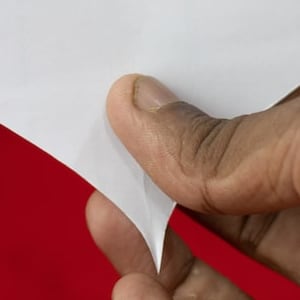someone’s jaw dropped: Idiom Meaning and Origin
What does ‘someone's jaw dropped’ mean?
When someone's jaw drops, it means they are extremely surprised or shocked by something they have just heard or seen.

Idiom Explorer
The idiom "that's saying something" is used to highlight a statement that is particularly noteworthy or impressive, often because it exceeds expectations or goes against common assumptions.
An idiom used to emphasize the extreme or exceptional quality of someone or something.
The idiom "take someone's breath away" means to astonish or amaze someone to the point of leaving them speechless or in awe.
When someone takes a tumble, they fall down or have a sudden accident.
The idiom "take aback" means to surprise or shock someone, causing them to be speechless or momentarily unable to react.
The idiom "sweet Mary mother of God" is an exclamatory phrase used to express surprise, shock, or awe. It is often used in moments of intense emotions or disbelief.
The idiom "sweet Mary" is a way to express shock or surprise. It is commonly used to convey a strong emotional reaction or astonishment towards a situation or an event.
The idiom "stop someone in their tracks" means to halt or interrupt someone suddenly, causing them to pause or cease their current action or thought. This expression implies a strong, unexpected impact or surprise that prevents further progress or movement.
The idiom "stop dead" means to suddenly and completely stop moving or doing something, often due to shock, surprise, or fear.
The Surprising Reaction
The idiom "make someone's jaw drop" is an extension of the phrase "someone's jaw dropped" and it adds an active element to the expression. It implies that something or someone has caused such a profound level of surprise or shock that it figuratively makes a person's jaw drop.
When someone's jaw drops, it is usually a spontaneous and involuntary reaction to a surprising or unexpected event or statement. However, the idiom "make someone's jaw drop" suggests that the surprise or shock is intentionally caused by someone or something. It emphasizes the impact or effect that the action or event has on the person.
An example of this idiom in use could be in a sentence like, "The magician's impressive trick made the audience's jaw drop in amazement." Here, the magician's trick is so astonishing that it figuratively causes the audience members' jaws to drop.
This idiom adds a sense of agency or intentional surprise to the act of someone's jaw dropping. It conveys the idea that the speaker deliberately or unintentionally did something that had an astounding effect on others.
By using the idiom "make someone's jaw drop," speakers can effectively describe a situation or event where they have left someone astonished or speechless. It demonstrates the power and impact of the action or statement being described.
The idiom "say what" is another expression commonly used to convey surprise or disbelief. It is often used when someone hears or encounters something unexpected or difficult to believe.
This idiom is succinct and concise, and it captures the essence of a person's shocked or incredulous reaction to something. It implies that the person is at a loss for words and is unable to respond immediately.
In conversation, the expression "say what" is often used as a form of rhetorical questioning to seek clarification or confirmation. It allows the speaker to express their surprise or disbelief while requesting further information or explanation.
An example of this idiom in use could be in a dialogue like, "I just won the lottery." "Say what?!" In this exchange, the second speaker expresses their shock and disbelief at the first speaker's statement by using the idiom "say what."
The idiom "say what" can also be accompanied by other expressions to amplify the level of surprise or incredulity. For example, phrases like "you've got to be kidding me" or "I can't believe my ears" can be used in conjunction with "say what" to further emphasize the person's astonishment.
Overall, the idiom "say what" provides a concise and expressive way to convey surprise or disbelief. It allows speakers to react in a conversational and informal manner when confronted with unexpected or unbelievable information.
The idiom "at a loss for words" is a phrase commonly used to describe a person's inability to articulate their thoughts or feelings due to shock, surprise, or astonishment.
When someone is at a loss for words, it means that they are temporarily speechless or unable to find the appropriate words to express themselves. It is a figurative expression that underscores the overwhelming impact or emotional intensity of a situation or event.
The idiom "at a loss for words" is often used to convey a profound level of astonishment or disbelief. It indicates that the person is so overwhelmed by their emotions that they are unable to formulate a coherent response.
An example of this idiom in use could be in a statement like, "The breathtaking beauty of the sunset left me at a loss for words." Here, the person is describing their inability to fully capture or describe the awe-inspiring sight of the sunset.
The idiom "at a loss for words" can also be used in various contexts to describe moments of surprise, shock, gratitude, or any other intense emotional state. It provides a concise and powerful way to convey the speaker's emotional reaction.
Furthermore, the idiom "make a splash" is a phrase often used to describe the impact or attention that someone or something receives when they enter a situation or make an appearance.
When someone or something makes a splash, it means that they create a significant and noticeable impression. It is often used in the context of public events, media appearances, or other situations where attention or impact is valued.
The idiom "make a splash" implies that the person or thing being described attracts attention, generates interest, or causes a stir. It suggests that the individual or phenomenon has a notable effect on the environment or the people around them.
An example of this idiom in use could be in a sentence like, "The new pop star made a splash with her debut single." Here, the phrase emphasizes the positive reception and attention that the pop star received upon entering the music scene.
The idiom "make a splash" can also be influenced by context and modified based on the specific situation being described. For example, phrases like "make a big splash" or "make a splash in the industry" can be used to convey an even greater level of impact or significance.
Lastly, the idiom "take aback" is an expression commonly used to describe a person's reaction of surprise, shock, or astonishment at something unexpected or unusual.
When someone is taken aback, it means that they are caught off guard or momentarily stunned by the situation or information presented to them. It is a figurative expression that conveys the suddenness and intensity of the person's emotional response.
The idiom "take aback" is often used to describe situations where the person's initial reaction is a mixture of surprise, confusion, and even disapproval. It suggests that the person is momentarily unable to respond or comprehend the situation.
An example of this idiom in use could be in a statement like, "The sudden announcement took everyone aback." Here, the idiom emphasizes the unexpected nature of the announcement and the resulting collective surprise or shock.
The idiom "take aback" can be used in various contexts to describe moments of surprise, shock, or astonishment. It provides a concise and impactful way to convey the speaker's emotional reaction to a specific event or situation.
The idiom "someone's jaw dropped" is a widely used phrase in English to describe a person's shocked or surprised reaction to something unexpected. The idiom "make someone's jaw drop" extends this expression by emphasizing the intentional or unintentional action that causes surprise or shock. The idioms "say what," "at a loss for words," "make a splash," and "take aback" are related expressions that also convey various aspects of surprise, disbelief, and astonishment. These idioms capture the range of emotional reactions that individuals experience when faced with unexpected or remarkable events or statements.
Example usage
Examples of how the idiom "someone's jaw dropped" can be used in a sentence:
- When she heard the news, her jaw dropped in astonishment.
- As the magician pulled a rabbit out of the hat, the children's jaws dropped in amazement.
- When he saw the price tag on the luxury car, his jaw dropped in disbelief.
More "Expression" idioms



